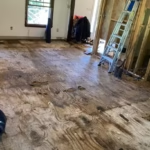Selling your home through traditional channels can take months. Between finding an agent, preparing your property for showings, waiting for the right buyer, and navigating lengthy closing processes, the average home sale stretches 30 to 60 days—and that’s assuming everything goes smoothly.
But life doesn’t always operate on real estate timelines. Job relocations happen with two weeks’ notice. Medical emergencies drain savings accounts overnight. Divorce proceedings move forward whether your house sells or not. Financial hardships don’t pause for market conditions.
When you need to sell your house fast, the traditional real estate process can feel like watching paint dry while your world shifts around you. Fortunately, alternative solutions exist that can close deals in days rather than months.
The Hidden Costs of Waiting
Most homeowners focus on maximizing their sale price, but time itself carries a price tag that’s easy to overlook. Every month your house sits on the market, you’re paying mortgage payments, property taxes, insurance, and utility bills. Maintenance costs don’t disappear either—lawns still need mowing, HVAC systems require servicing, and wear-and-tear continues accumulating.
Consider a homeowner paying $2,500 monthly in carrying costs. If their house takes four months to sell instead of closing immediately, they’ve spent an additional $10,000 just waiting for the “right” buyer. That’s $10,000 that could have gone toward their next chapter instead of preserving the status quo.
The opportunity cost extends beyond direct expenses. Money tied up in real estate can’t be invested elsewhere or used to solve pressing problems. A family facing foreclosure can’t wait for the spring selling season. Someone relocating for work can’t manage two mortgages indefinitely.
When Speed Trumps Maximum Price
Several scenarios make quick sales more valuable than top-dollar offers:
Job relocations often provide limited time to handle housing transitions. Corporate relocations typically allow 30 to 60 days for employees to report to their new location. Selling quickly eliminates the stress of managing property from hundreds of miles away.
Financial distress creates urgency that traditional sales can’t accommodate. Whether facing foreclosure, medical bills, or business failures, homeowners need immediate liquidity rather than theoretical future profits.
Inherited properties frequently require fast resolution. Multiple heirs may want their share quickly, or ongoing property taxes and maintenance costs may drain the estate’s value while family members decide what to do.
Divorce settlements rarely allow time for extended marketing periods. Courts expect asset division to proceed efficiently, and neither party wants to remain financially entangled longer than necessary.
Property condition issues can make traditional sales nearly impossible. Homes requiring extensive repairs often struggle to attract conventional buyers, while renovation costs may exceed the expected return on investment.
The Cash Buyer Advantage
Companies like Homes For Cash Guys have built business models around solving these timing problems. Cash buyers purchase properties directly from homeowners, eliminating many traditional sale complications.
The process typically works like this: homeowners contact the cash buying company, provide basic property information, and receive an offer within 24 to 48 hours. If they accept, closing can happen in as little as seven days since cash purchases don’t require mortgage approval processes.
This approach eliminates several traditional sales requirements. No staging, no open houses, no showings at inconvenient times. No waiting for buyer financing approval or worrying about deals falling through at the last minute. No real estate agent commissions or lengthy contract negotiations.
Cash buyers also purchase properties in as-is condition. Homeowners don’t need to invest in repairs, updates, or deep cleaning before selling. The buyer handles any necessary work after closing, removing that burden from the seller’s timeline and budget.
Understanding the Trade-offs
Quick sales involve trade-offs that homeowners should understand clearly. Cash buyers typically offer 70% to 80% of a property’s fair market value. This discount reflects their need to profit from the transaction while accounting for renovation costs and market risks.
However, this discount often becomes less significant when factoring in traditional sale costs. Real estate commissions usually run 5% to 6% of the sale price. Closing costs add another 2% to 3%. Repairs and updates can easily cost thousands more. Carrying costs during extended marketing periods pile on additional expenses.
A homeowner might receive $200,000 through traditional sale methods after all expenses, or $170,000 from an immediate cash sale. The $30,000 difference might be worthwhile for someone who needs to relocate immediately or solve pressing financial problems.
Evaluating Your Situation
The decision to sell quickly versus maximizing price depends on individual circumstances. Consider these factors:
Timeline pressure: How urgently do you need to complete the sale? If you have flexibility, traditional methods might work better. If you’re facing hard deadlines, speed becomes more valuable than maximum profit.
Property condition: Homes needing extensive work often struggle in traditional markets. Cash buyers purchase properties regardless of condition, potentially making quick sales more practical.
Market conditions: In slow markets, traditional sales can take significantly longer and may not achieve expected prices anyway. Quick sales provide certainty in uncertain conditions.
Financial situation: If carrying costs are straining your budget or if you need immediate access to your property equity, quick sales can provide relief.
Stress tolerance: Traditional sales involve showings, negotiations, and potential deal complications. Some homeowners prefer the simplicity of cash transactions, even at lower prices.
Making the Right Choice for Your Circumstances
Home For Cash Guys offers multiple pathways to achieve your goals, and for many homeowners looking to sell my house fast, quick cash sales present a practical solution. Traditional sales work well for those who have time, properties in good condition, and a desire to maximize their return, while quick cash options serve sellers who prioritize speed, certainty, and simplicity over maximum profit.
Neither approach is inherently better—they serve different needs and circumstances. The key lies in honestly assessing your situation and choosing the method that best aligns with your priorities and constraints.
If you’re facing time pressure, property condition challenges, or simply want to avoid the traditional sale process, companies specializing in quick purchases can provide viable alternatives. Research your options, understand the trade-offs, and make the decision that best serves your specific situation.

















